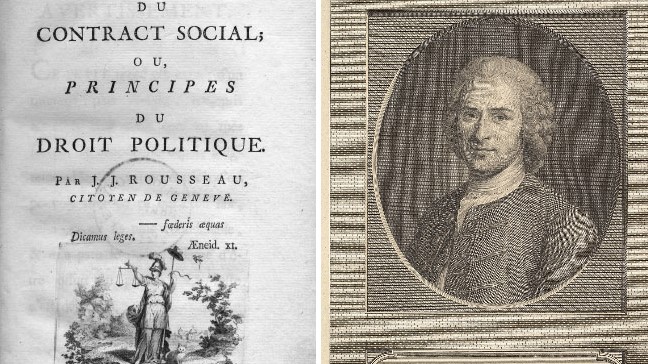The Social Contract, written by Jean-Jacques Rousseau in 1762, is a seminal work in political philosophy that presents a theory of government based on the idea of the “general will.” The book argues that legitimate political authority derives from a social contract based on popular sovereignty, in which individuals agree to subordinate their individual wills to the collective will of the community. The Social Contract is widely regarded as one of the most influential works in the history of political thought, and it has had a lasting impact on the development of democratic theory and practice.
The Social Contract is divided into four parts, in which Rousseau discusses the nature of the social contract, the relationship between the individual and the state, the role of the state in protecting individual freedom, and the relationship between political and moral freedom. Throughout the book, Rousseau emphasizes the importance of the “general will,” which he defines as “the will of all regarded as one and the same person” (Rousseau, 1762, p. 61). He argues that the general will is always in the best interest of the community as a whole, and that it is the duty of the state to enact and enforce policies that are in accordance with the general will.
Critique
The Social Contract has been subject to a wide range of critiques since its publication. Some scholars have criticized Rousseau’s theory of the “general will” as being too vague and open to manipulation by the state. They argue that the concept of the general will can be used to justify authoritarianism or totalitarianism, and that it does not provide a clear standard for determining what policies are in the best interest of the community (Carrithers, 2015).
Others have criticized Rousseau’s lack of concrete proposals for how the social contract should be implemented in practice. They argue that his ideas are too idealistic and do not take into account the complexities of human nature and society. For example, Murray Rothbard argues that “the problem with Rousseau’s view of the social contract is that it assumes that a group of individuals can agree to a social contract, but then does not explain how this contract can be enforced” (Rothbard, 2008).
Despite these critiques, The Social Contract remains an important work in political philosophy, and its ideas continue to be studied and debated by scholars today.
Quotes
On the nature of the social contract:
“The social contract is an agreement between the people and the government, in which the people agree to give up their individual rights in exchange for protection and security provided by the government” (Rousseau, 1762, p. 18).
On the relationship between the individual and the state:
“The individual must subordinate their will to the collective will of the community in order to achieve true freedom” (Rousseau, 1762, p. 23).
On the role of the state in protecting individual freedom:
“The state must act as an instrument of the people, and must always act in the best interest of the community as a whole” (Rousseau, 1762, p. 47).
On the relationship between political and moral freedom:
“Freedom cannot exist without morality, and morality cannot exist without freedom” (Rousseau, 1762, p. 105).
On the relationship between religion and the state:
“The state has no authority over matters of conscience or religious belief, and must remain neutral in matters of religion” (Rousseau, 1762, p. 214).
On the relationship between the ruler and the ruled:
“The ruler is not above the law and must always act in accordance with the general will. The people have the right to overthrow a ruler who fails to act in the best interest of the community” (Rousseau, 1762, p. 74).
